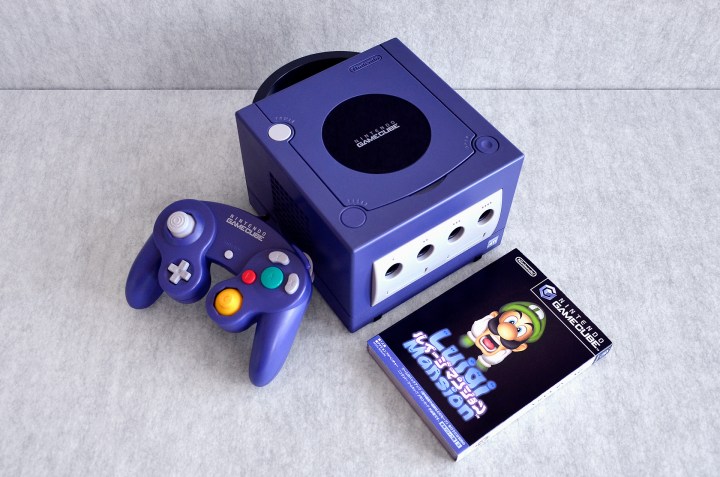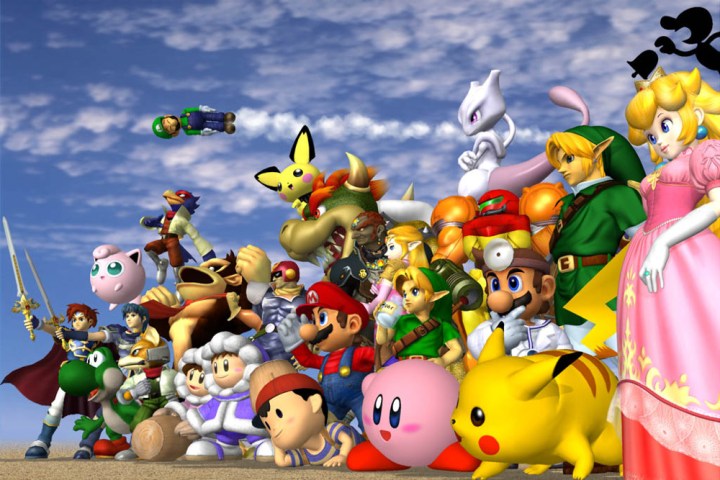Today is the 20th anniversary of the release of the Nintendo GameCube, a system with a complicated legacy. Despite having a lot going for it on paper, it was up against stiff competition in the early 2000s. Sony and Microsoft were both moving the industry forward with the PlayStation 2 and Xbox respectively. Games like Metal Gear Solid 2: Sons of Liberty and Halo felt more mature next to Nintendo’s typically colorful fare. The sales numbers ultimately tell the story, with the GameCube moving 21.74 million units versus the PS2’s 155 million.
While the cube-shaped console is among Nintendo’s least successful financially, it still holds a fond place in many players’ hearts. And for good reason: The Nintendo GameCube still has the best exclusive game library of any console, period.
Only the hits
Sure, that’s a controversial statement. After all, the GameCube’s stiffest competition in that department is Nintendo itself. Consoles like the Super Nintendo have historically been lauded as touting the all-time-best games library. The Nintendo Switch is also starting to mount a strong run at that title thanks to games like The Legend of Zelda: Breath of the Wild and Super Mario Odyssey. Outside of Nintendo, both the PS2 and PS4 boast an incredible list of exclusives. It’s a tight race all around.
Despite that, the GameCube’s library still shines bright. When it comes to the heavy hitters, some of the best entries in Nintendo’s biggest franchises are on GameCube. Wind Waker was a defining moment for Zelda, Metroid Prime reinvented the first-person shooting genre entirely, and Super Smash Bros. Melee turned the fighting series from a gimmick to a competitive institution.

An era of experimentation
The GameCube era was a space where Nintendo was eager to experiment with game design. While polarizing, Super Mario Sunshine wasn’t afraid to throw the Mario rulebook out the window with delightful results. Mario Kart: Double Dash’s co-op racing is still the series’ most inventive moment. And how can we forget Donkey Konga, a brilliant rhythm game that used a pair of plastic bongos as controllers? For a company known for its creativity, Nintendo was firing on all cylinders in the early 2000s.
That’s especially true when you look at the original franchises that came out of the GameCube. Luigi’s Mansion finally gave Mario’s little brother something to do, creating an unlikely launch title. Pikmin was another strong early GameCube game that found Shigeru Miyamoto at his most weird and wonderful. The GameCube was also the home for Animal Crossing, which had its breakout moment after debuting overseas on the Nintendo 64.
The GameCube was perhaps the last time that Nintendo was truly invested in supporting all of its various franchises. It wasn’t just a console full of mainline Mario titles and Zelda games. F-Zero, StarFox, Paper Mario, Fire Emblem, and more all had strong moments on the system. It was also the last hurrah of sorts for the Mario sports series, with strong entries like Mario Golf: Toadstool Tour and Super Mario Strikers. Few Mario sports titles have risen to those heights in the decades following.

Nintendo at its peak
It’s not just first-party support that elevates the GameCube. Nintendo landed some serious third-party support, a feat that it’s struggled to pull off ever since. Capcom led the charge, offering up five-star classics like Resident Evil 4 and Viewtiful Joe as exclusives initially (though both were later ported elsewhere). That’s only the tip of the iceberg, though. The GameCube is full of truly bold titles like Killer7, Eternal Darkness: Sanity’s Requiem, Odama, and Ikaruga, all of which initially launched with an “Only on Nintendo GameCube” stamp. It’s a shockingly rich library of deep cuts that hasn’t really been replicated since.
For those who never grew up with a GameCube, it’s hard to explain just how strong the console’s run was. Every month brought some must-play game that no collection was complete without. While Sony and Microsoft each rolled out a fair share of top-level classics, the innovation present in the GameCube’s lineup is staggering. It’s Nintendo at its peak, both as a game maker and as a prestige company that could entice other companies to give it their biggest games as exclusives.
Now if only Nintendo would give us a way to play those games on Switch.



